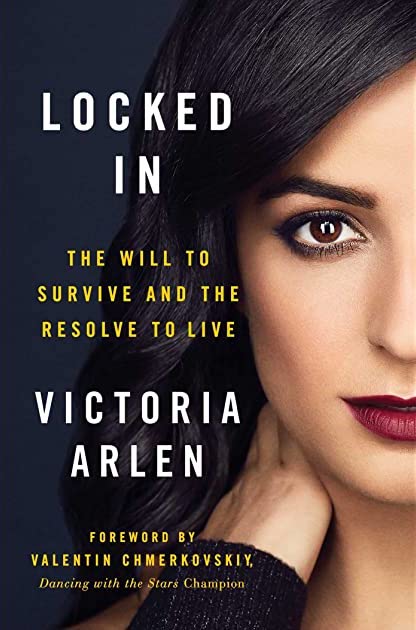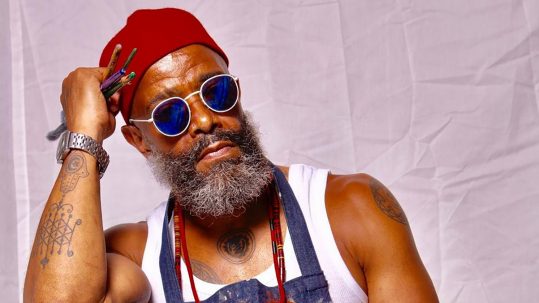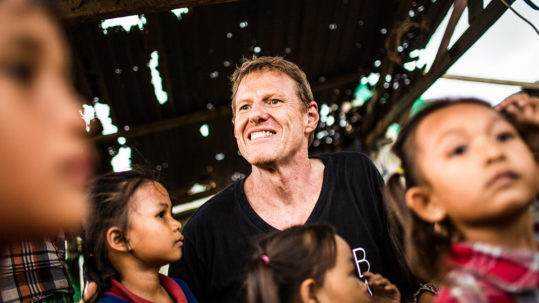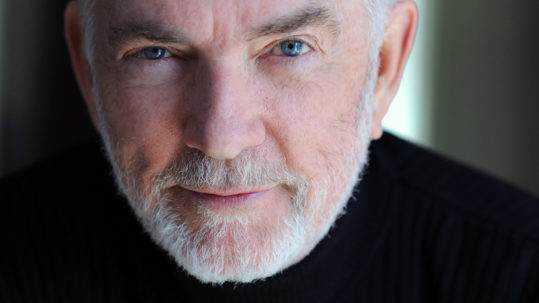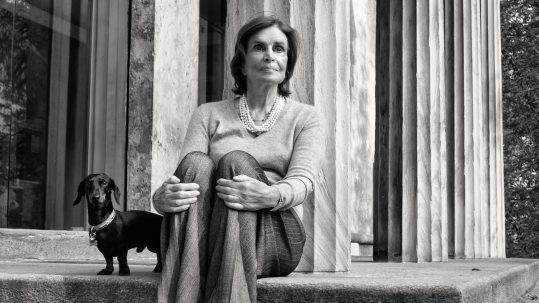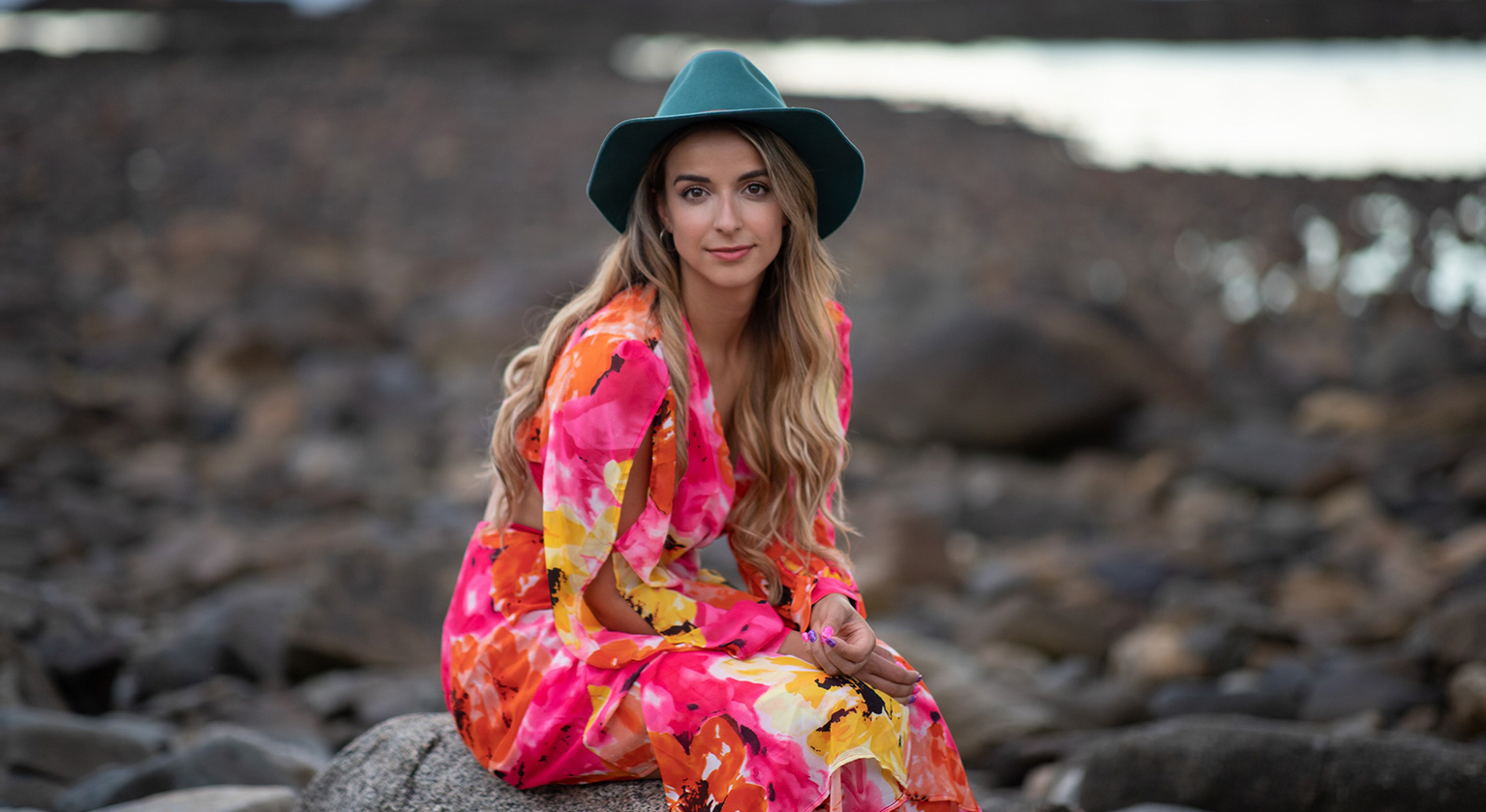
14 Apr Victoria Arlen
Photo by Meg Dalzell
Victoria Arlen
Imagine being locked in your own body for four years—unable to speak, eat, move, or tell people that you can hear them and understand everything around you. Imagine your brain is functioning throughout it all, and you have all that time to think! That’s what happened to Victoria Arlen as she slipped into a vegetative state from age 11 to 15, a situation from which recovery was unlikely. When she finally woke up, she had to relearn everything. Arlen was paralyzed from the waist down and spent ten years in a wheelchair, doctors stating a zero chance of her ever walking again. However, she defied the odds and made the impossible possible. On September 6, 2017, she not only stood on her two feet but also competed in the 25th season of Dancing with the Stars. Victoria is a current television personality for ESPN as well as an actress, speaker, model, humanitarian, and former American Paralympian swimmer. She is the founder of Victoria’s Victory Foundation and the author of Locked In—The Will to Survive and The Resolve To Live.
By Victoria Adelaide | April 12. 2021
Victoria Adelaide: At age 11, you got sick and slipped into a vegetative state for almost four years. But before that happened, what sort of child were you?
Victoria Arlen: I was a very healthy, active, and rambunctious little girl, and I didn’t have any health issues. I’m one of four siblings. I have three brothers; two of them are my triplet brothers. I’m the only girl in the family. I was always on the move with them and had a very normal, beautiful childhood. There wasn’t anything out of the ordinary until I was about 11, I’d say.
VA: So, what happened when you were 11?
VA: I developed two rare autoimmune conditions that attacked my central nervous system. One of them was transverse myelitis, and it struck my spinal cord, and the other was acute disseminated encephalomyelitis, which attacked my brain. Those two conditions created the perfect storm and took away every motor ability I had; I slipped into a vegetative state.
VA: You were literally locked in your own body but aware of everything around you. While being in that state, what were the thoughts that crossed your mind?
VA: I think, at first, I panicked. Then, I tried to put the pieces of the puzzle together to understand what had happened to me. Where was I? Was I going to be okay? I spent a lot of time focusing on my mindset and gratitude, which I think helps in any horrible situation. How was I going to get out of this? How could I beat this? According to doctors, I was a lost cause. There wasn’t a lot that they could do. So I knew this was going to come down to me; I’d have to dig deeper than I’d ever dug before and try to break free of this.
VA: Then, in November 2009, the unexpected occurred…
VA: Yes, they were trying to stop the seizures that I had, which happened for about 20 hours/times a day, on and off. They’d given me a sedative, and some chemical reaction between the sedative and a certain neurotransmitter that kept misfiring caused the seizures. But that day, my seizures stopped for the first time in a year, and I could regain control of my eyes. I was able to look at my mom. She realized I was making eye contact with her for the first time in years, and she asked me, “Victoria, if you can hear me, can you blink twice?” And I just kept blinking. That’s how my family knew I was in there.
VA: Wow! So you awoke, and you had to relearn everything: how to move, eat, speak, etc. How long did it take?
VA: It was a very long process. It was just the very fine motor movements that took a while, but I knew I could do them because I’d done them before. However, I hadn’t done them in so long, so there was a significant disconnect. It took probably a good six months for me to become independent again and find a new normal with this body that was only half functioning but still functioning.
VA: Tell me about that day when your brothers decided to throw you in the water [both laugh]. Why was it such a great idea?
VA: They did! Brothers! [laughs] They wanted to help me get back to the things that I loved to do before. As crazy as it seemed, it was such a loving gesture because it really helped me get over that fear of not only drowning but also just stepping back into my old life and the things that I used to love—I thought they were going to be very different and so much more challenging. So, my brothers threw me in; they never let go of me, but slowly, that love of being in the water and that freedom came back to me in a whole different way. It changed the course of my life and what I believed I was capable of doing.
VA: Right, and you qualified for the 2012 Summer Paralympics held in London, as a member of Team USA, and you won four medals! [smiles]
VA: Yes, one gold and three silvers.
VA: For four years, you couldn’t go to school. What was the experience like when you went back?
VA: I think that was harder than relearning how to do everything because the world had moved on. I was 11, and then, I was 15. I had a few friends who did stick around, but many people had moved on with their lives. People were told I wasn’t going to make it for a very long time. So, it was very challenging to find that normalcy again with a lot of my friends; and kids in high school, in general, aren’t the most empathetic or the nicest. I felt like an alien because I’d been through so much. I was so ahead of them when it came to life experiences; seeing the things that trip up a high schooler, I would say, “Are you kidding me? This is ridiculous!” I was a lot more mature in those aspects but still needed to catch up with my studies. I think that’s why I went for it with swimming. Swimming was mainly a coping mechanism for me with everything that was going on and all the noise. The more I swam, the more I kept my sanity and found a purpose. London was on my radar, but I would say that it was just a funny pipe dream. I used to say, “Oh, I’m going to go there.” I love to swim, I love to compete, and it happened naturally. The right people came into my corner, which made a difference.
VA: After years of defying the odds and proving everybody wrong, including the doctors who considered you as a lost cause and gave you no chance to survive that ordeal or to walk again, you appointed a coach, started to train, and got that feeling in your leg one day. Could you share your thoughts about this journey?
VA: I was swimming and competing, but when I first grasped everything that happened to me, my family promised me that they would do whatever it took to help me get back everything that was taken away. That promise led us to a world-renowned paralysis recovery center on the other side of the country in California. Once there, we realized it was the best possible chance for my recovery. But at this point, the doctors said, “There’s no chance; don’t mortgage your house going after this. You’re not going to have the outcome that you want.” Then, as we were leaving, my mom got an epiphany. We were so alone in this ordeal but, at the same time, felt fortunate that I had made it through. When you’re given a second chance, you have to make the most of it and have a purpose for it too. So, she called my dad and said, “Do you remember when we talked about me going back to work now that the kids are in school, on their way to college, and Victoria is doing well?” My dad answered, “Yes.” Then, she said, “Why don’t we open up a facility like this on the east coast? Victoria can get this treatment, and we can give her the best possible chance and also help other families like ours, people like Victoria, find some hope.” Then, she added, “I figured out the numbers. We can do it if we mortgage the house.” And that’s literally what they did. They mortgaged the house and gave me the biggest gift, which was a chance to go after this seemingly impossible dream. They gave that hope to other people too. I trained there six hours a day every day. We finally started seeing muscle twitches in my right leg. That was the first active muscle firing in almost a decade. Then, I learned to stand again. I took steps and started walking nearly ten years since the day I became paralyzed. Our facility, Project Walk Boston is now one of the leading paralysis recovery centers in the world. People from all over the world come to train at our facility. My mom periodically calls me and says, “Because of everything you went through, this person hugged their spouse for the first time, this person is standing, this person is taking steps, this person is more independent.” Yes, I’m walking, which is awesome, but so many other people are finding hope, too, in what were once labeled hopeless situations.
Photos courtesy of Victoria Arlen.
VA: You went through so much at such a young age. How would you say it changed you?
VA: It changed me in every possible way. I always say, “I wouldn’t choose it, but I wouldn’t change it.” The person I am today, the things I get to do, my family, and the people in my life—none of that would have really turned into what it is had we not gone through that. I have an even more special relationship with my brothers, parents, aunts, uncles, and grandparents. The most beautiful people have come into my life, and I get to live this life I could have never imagined. Yes, there are a few moments where I think I should not have gone through that, but it’s really made me the person I am today. It’s made me think bigger; it expanded my mindset to not just think on a linear one-track space but go broader, and I want to do what I can to help people. I’m fearless; I go for the impossible and make it possible. I’ve always been a very self-aware person, and I knew who I was before I got sick. I was very much linear, going down the easy path—I had dreams but never the thought that I could ever go after them. When I look at Victoria now, I realize this experience made me the best version of myself. Many people, when they go through challenges, can be bitter, angry, and fall apart. There’s nothing wrong with that along the way, but you can’t stay there. You can really grow through that pain and those things and come out the other end. I look at who I am now, and I know that this would not have happened had I not gone through that.
VA: Did you notice a change in people’s attitudes toward you?
VA: I think people didn’t know what to say or how to act. They meant well, but they kept thinking I was fragile and still in this state. I would say, “No, I’m fine, I’m alive, I made it!” Many people didn’t understand the severity of everything, and it was more awkward once I started succeeding in my life. Instead of saying, “Oh, poor you,” people would say, “Oh, you’re so lucky!” That would get my mom, and she would say, “If they really knew the price that you paid to get to this point!” I remember I had a girlfriend; we had been friends since we were six years old. She stood by me, and she was always a great support system. A couple of years post the vegetative state, when I was getting ready for a movie premiere, she called me and said, “Hey!” And I replied, “Hey, what’s going on?” And she said, “I’m making a quesadilla and studying for my exams.” I said, “That’s cool!” Then she asked, “Yeah, what about you?” I replied, “I’m just getting ready.” She asked, “For what?” I said, “I’m going to this premiere.” Then she said, “What? Like a movie premiere?” Then, she said something I’ll never forget, and it really changed our friendship: “Man, you’re so lucky. When can I sign up for transverse myelitis?” This was someone who hadn’t had dealt with any adversity, and she was taking the linear path I would have taken before. I remember sitting there in shock, and my mom walked in. We were both going to this event together, and she asked me if I was okay. I didn’t even know what to say. This person had watched me suffer, witnessed the horrible things and the pain I was in, and then when things turned around, it was the opposite: “I was so lucky.” No! The world I’m in, which is more in the public eye, comes with a whole other level of awkwardness with people and stuff for you. I went from being in a vegetative state like, “Oh, she almost died, she’s so fragile,” to “Oh, she’s so lucky, or she’s so famous!” I feel like I’ve had two different levels of awkwardness, two extreme sides of my life. In the end, I’m just me, and I’m doing the best I can with the second chance I’ve been given.
VA: Yes, and you are doing amazing! [smiles] Could you tell me about Victoria’s Victory Foundation?
VA: Victoria’s Victory Foundation is something I had dreamt of since I was little. I’ve always wanted to help people, and as I navigated the world while in a wheelchair and then came out of it, I realized how many people did not have proper wheelchairs, proper therapy, or nursing care hours. There was such a huge need for this forgotten community of individuals living with disabilities, from little kids to adults to older adults who didn’t have a proper support system. When I recovered, I tried to seek out the purpose for behind giving me a second chance at life because, clearly, God had a plan! I remember thinking, we need to do something about this. So, my mom and I got together with Susan Stover, our executive director, and she was all about it. It was all started lining up perfectly, and I said, “Let’s do this. Let’s help people!” We launched in 2017, and we’ve been going strong ever since. We provide support—whether that’s nursing care hours, training hours, adaptations, home adaptations, car adaptations, or wheelchair equipment for individuals living with disabilities or mobility challenges. We have a victory scholarship program that revolves around the question, what is your victory, and how can we be a part of that? As a nonprofit, what we’ve been able to do in such a short period of time is incredible, especially seeing lives being changed every single day for people across all ages and from all over the country. It’s really given a whole new meaning to the second chance at life that I’ve been given.
VA: What is the next impossible thing you’d like to achieve?
VA: The next impossible thing… I think I really want to have my own talk show one day. Yeah, I would love to do that.
**You can get involved and support Victoria Arlen and her team in changing other people’s lives by visiting www.victoriasvictory.org
...Yes, I'm walking, which is awesome, but so many other people are finding hope, too, in what were once labeled hopeless situations.``

